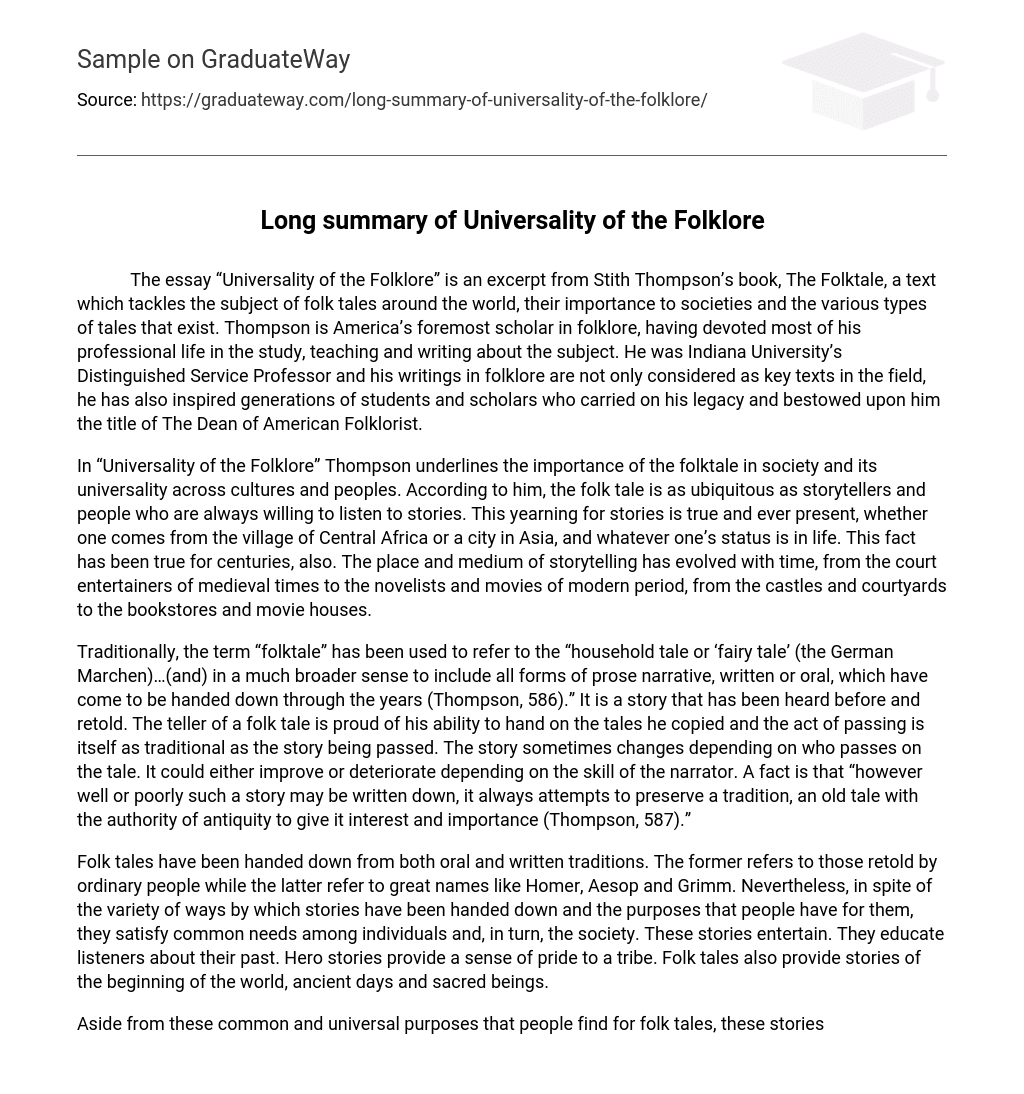The essay “Universality of the Folklore” is an excerpt from Stith Thompson’s book, The Folktale, a text which tackles the subject of folk tales around the world, their importance to societies and the various types of tales that exist. Thompson is America’s foremost scholar in folklore, having devoted most of his professional life in the study, teaching and writing about the subject. He was Indiana University’s Distinguished Service Professor and his writings in folklore are not only considered as key texts in the field, he has also inspired generations of students and scholars who carried on his legacy and bestowed upon him the title of The Dean of American Folklorist.
In “Universality of the Folklore” Thompson underlines the importance of the folktale in society and its universality across cultures and peoples. According to him, the folk tale is as ubiquitous as storytellers and people who are always willing to listen to stories. This yearning for stories is true and ever present, whether one comes from the village of Central Africa or a city in Asia, and whatever one’s status is in life. This fact has been true for centuries, also. The place and medium of storytelling has evolved with time, from the court entertainers of medieval times to the novelists and movies of modern period, from the castles and courtyards to the bookstores and movie houses.
Traditionally, the term “folktale” has been used to refer to the “household tale or ‘fairy tale’ (the German Marchen)…(and) in a much broader sense to include all forms of prose narrative, written or oral, which have come to be handed down through the years (Thompson, 586).” It is a story that has been heard before and retold. The teller of a folk tale is proud of his ability to hand on the tales he copied and the act of passing is itself as traditional as the story being passed. The story sometimes changes depending on who passes on the tale. It could either improve or deteriorate depending on the skill of the narrator. A fact is that “however well or poorly such a story may be written down, it always attempts to preserve a tradition, an old tale with the authority of antiquity to give it interest and importance (Thompson, 587).”
Folk tales have been handed down from both oral and written traditions. The former refers to those retold by ordinary people while the latter refer to great names like Homer, Aesop and Grimm. Nevertheless, in spite of the variety of ways by which stories have been handed down and the purposes that people have for them, they satisfy common needs among individuals and, in turn, the society. These stories entertain. They educate listeners about their past. Hero stories provide a sense of pride to a tribe. Folk tales also provide stories of the beginning of the world, ancient days and sacred beings.
Aside from these common and universal purposes that people find for folk tales, these stories also share similarities in structures. The same tale types and narrative motifs can be found in the many tales around the world. These interesting attributes make folk tales a window towards discovering the nature of human culture. For this reason alone, the promotion of their study is needed and should be encouraged.
Work Cited
Thompson, Stith. “Universality of the Folk Tale,” Writing and Reading Across the Curriculum (10th edition). (Laurence Behrens and Leonard Rosen, eds). Addison Wesley.





